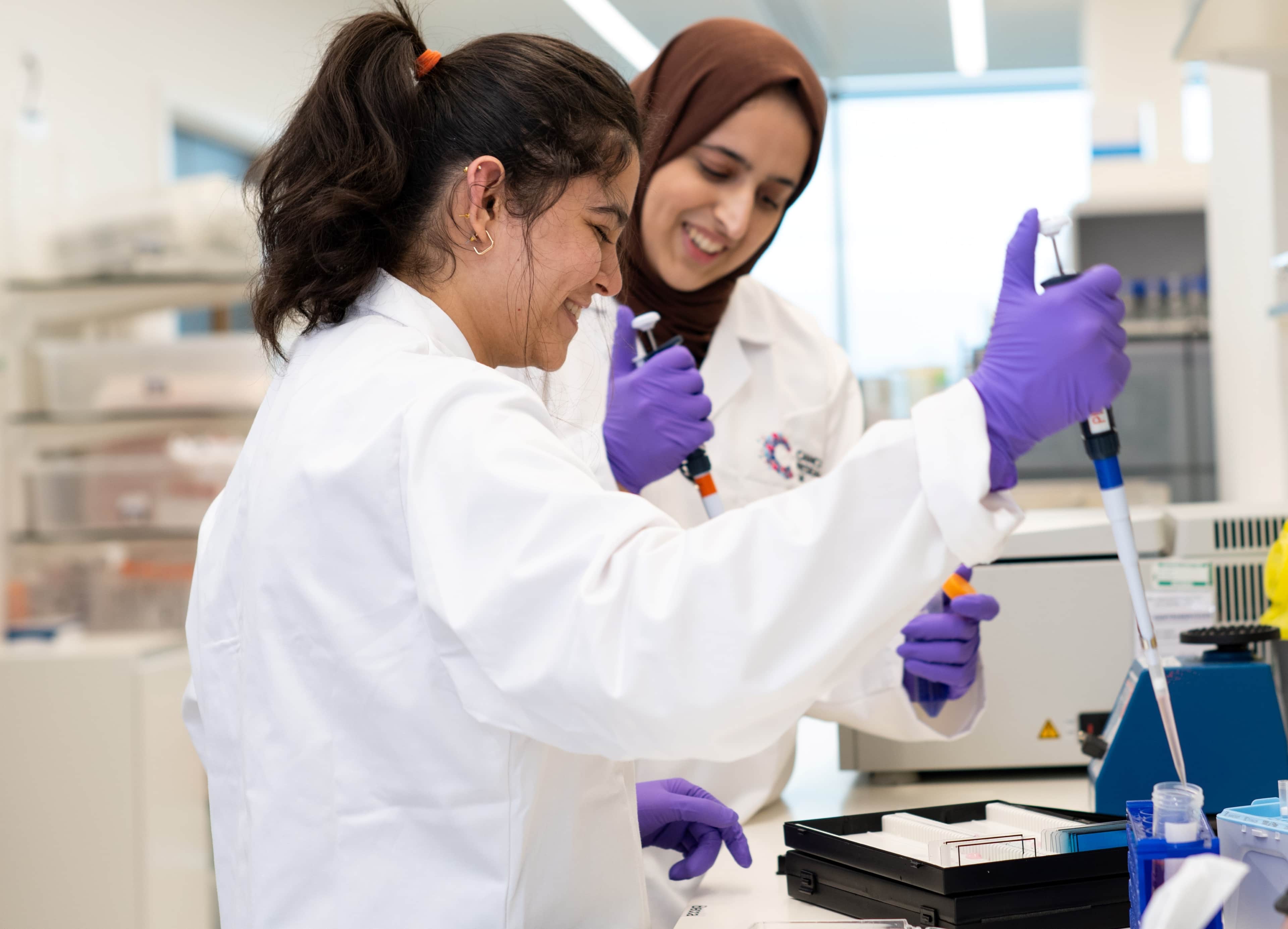
Our scientists have made vital contributions to finding new and better ways to diagnose and treat prostate cancer. Below are a few of our most important discoveries.
1994-2002 – Our scientists show that inherited faults in the BRCA1 and BRCA2 genes increase the risk of prostate cancer, and that these prostate cancers are more likely to be dangerous and need treating.
2011 – Our researchers discover a genetic signature that can help doctors predict if a man’s prostate cancer is likely to be aggressive and need treating. This genetic test could be an important step towards sparing some men unnecessary treatment.
2013 – We reveal the genetic variations that affect men's risk of developing prostate cancer. The large, international project we help support could help tailor men's treatment in future.
2015 – Our landmark study shows that prostate cancer is five distinct diseases based on their genetic fingerprint, a discovery that could help guide future treatment decisions made by doctors and potentially save lives.
1938 – We pioneer the development of hormone treatments for cancer. The first ever man-made hormone, developed by our scientists, becomes the treatment of choice for over 40 years for men with prostate cancer and paved the way for today’s hormone therapies.
1995-2008 – We play a crucial role in discovering and developing an effective new hormone treatment for prostate cancer, called abiraterone. Thanks to our work, abiraterone is extending the lives of men with the disease.
2012 – We show that stop-start hormone therapy improves men's quality of life and reduces side effects. This large international clinical trial gives men a new treatment option.
2017 – Our research shows a potential new treatment option for some people with prostate cancer could help many more men survive their disease. Results from the STAMPEDE clinical trial – one of the largest of its kind – find that adding the drug abiraterone to hormone therapy at the start of treatment could greatly improve survival.
2009 – We test a new type of drug, called a PARP inhibitor, for the first time in men with prostate cancer caused by faulty BRCA genes. This could give men an effective new treatment option. Clinical trials are still on-going, but are looking promising.
2015 – Our clinical trial - STAMPEDE - shows that combining chemotherapy with standard hormone treatments as a first therapy for men diagnosed with advanced prostate cancer extends their survival.
2017 – Doctors could find it easier to spot which prostate tumours are aggressive and need treating, thanks to a new imaging technique our researchers develop. Understanding a man's individual tumour could spare some men unnecessary treatment.
2000 – We open the first UK trial of a more precise type of radiotherapy for prostate cancer called IMRT. Because it’s more targeted, it reduces side effects for men with prostate cancer.
2016 – Men could be saved from extra hospital trips after our large clinical trial shows that fewer, stronger doses of radiotherapy are just as effective at treating prostate cancer and don't cause any more side effects.

From studying the biology of prostate cancer cells in the lab to leading clinical trials testing cutting-edge treatments, our researchers are working hard to ensure more men survive prostate cancer.

Meet people like Alfred who have experienced first-hand how our research is making a difference. The life-saving research we do wouldn’t be possible without your support.
Want to find more information about our research or prostate cancer?